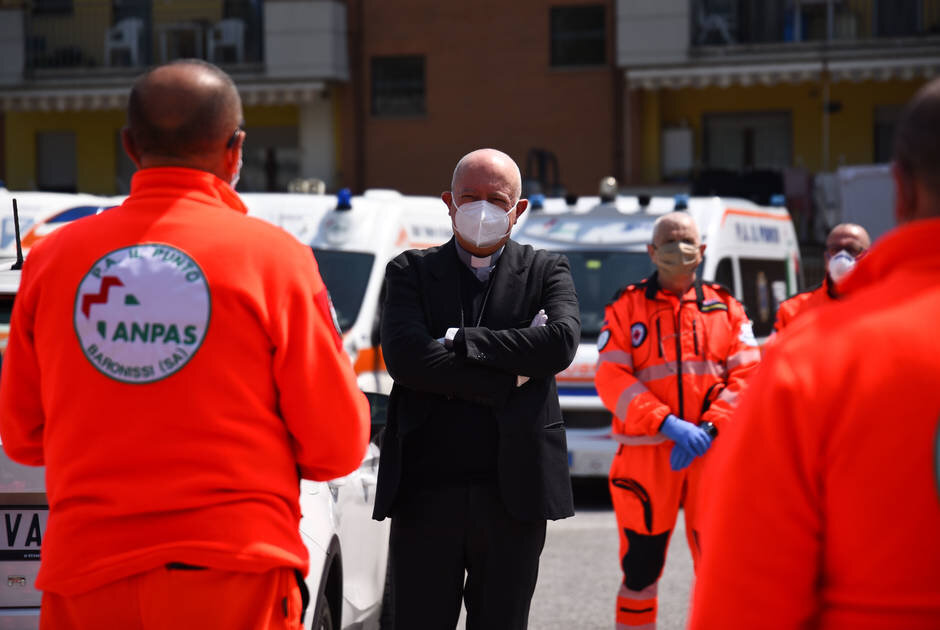When Margaret Hoffman passed away last spring, her remains were brought from California to her hometown in Wisconsin and interred in a plot she chose years ago. There was a brief, Christian ceremony and those in attendance sang the hymn, “The Old Rugged Cross” per her request. In many ways, it all happened exactly as planned.
One thing Hoffman could not have foreseen, however, was that her funeral would take place during a global pandemic, which prevented most of her family from attending, save for a few distant cousins.
Along with claiming the lives of millions, COVID-19 has upended death rituals like Hoffman’s across faith traditions and spurred religious actors to respond with creativity and compassion when it comes to bereavement services and crisis response.
Here is the story of two faith leaders — one a rabbi in the United States and the other a priest in India — who have stepped up to provide frontline care, and inspire others to follow their lead, in the midst of an unprecedented pandemic.



